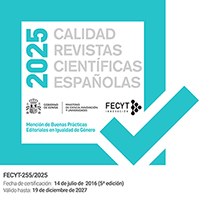Love’s Object, or, Unrequitable Love: Reflections on the literature of Passion between Rousseau and Percy Shelley
El objeto del amor, o el amor incorrespondible: reflexiones sobre la literatura de la pasión entre Rousseau y Percy Shelley
DOI:
https://doi.org/10.5944/etfiv.36.2023.38675Keywords:
Artwork; imagination; love; sensibility; unrequiteAbstract
This discussion of the literature of unrequited love deals with the elusiveness of love’s object in the world, and asks whether that elusiveness may be intrinsic to the passion. If love is dependent upon the imagination, this implies vulnerability to disappointment or unappeasable longing: but it also makes space for the imagination as creative function or power. The unrequited lover in the texts under discussion is significantly also a writer, a maker of letters or books or poems; the artwork is understood less as a displacement of desire than as a model for its instantiation in the world. Texts discussed include Rousseau, Julie; Sterne, A Sentimental Journey; Goethe, The Sorrows of Young Werther; Mary Robinson, Sappho and Phaon; Mary Hays, Memoirs of Emma Courtney; Percy Shelley, ‘On Love’, Hazlitt, Liber Amoris; and Plato, The Symposium.
Downloads
References
Austen, Jane, Persuasion, eds. Janet Todd and Antje Blank, Cambridge, Cambridge University Press, 2006.
Brant, Clare, Eighteenth-Century Letters and British Culture, London, Palgrave Macmillan, 2006.
Carson, Anne, trans., If Not, Winter: Fragments of Sappho, London, Virago, 2003.
Fawcett, Julia H., Spectacular Disappearances: Celebrity and Privacy, 1696-1801, Michigan, University of Michigan Press, 2016.
Hays, Mary, Memoirs of Emma Courtney, ed. Eleanor Ty, Oxford, Oxford University Press, 1996.
Goethe, Johann Wolfgang von, The Sorrows of Young Werther; Elective Affinities; Novella ed. David Wellbery, trans. Victor Lange and Judith Ryan, Princeton, Princeton University Press, 1995.
Hazlitt, William, Selected Writings, ed. Ronald Blythe, Penguin, 1970.
McGann, Jerome, «Mary Robinson and the Myth of Sappho», Modern Language Quarterly, 56/1 (1995): 55-76.
McGann, Jerome, The Poetics of Sensibility: A Revolution in Literary Style, Oxford, Clarendon Press, 1996.
Milner, Marion, On Not Being Able to Paint, 2nd ed., International Universities Press, 1990.
Pinch, Adela, Strange Fits of Passion: Epistemologies of Emotion, Hume to Austen, Stanford, Stanford University Press, 1996.
Pope, Alexander, Poetical Works, ed. Herbert Davis, London, Oxford University Press, 1966.
Robinson, Daniel, ‘The English Sappho and the Legitimate Sonnet’, in The Poetry of Mary Robinson: Form and Fame, London, Palgrave Macmillan, 2011.
Robinson, Mary, Selected Poems, ed. Judith Pascoe, Peterborough, Ontario, Broadview, 2000.
Rousseau, Jean-Jacques, Julie, or the New Heloise, trans. Philip Stewart and Jean Vaché, Lebanon, New Hampshire, University Press of New England, 1997.
Rousseau, Jean-Jacques, The Confessions of Jean-Jacques Rousseau, trans. and ed. J.M. Cohen, London, Penguin, 1963.
Shelley, Percy Bysshe, Poetical Works, eds. Thomas Hutchinson and G. M. Matthews, Oxford, Oxford University Press, 1970.
Shelley, Percy Bysshe, Shelley on Love: Selected Writings, ed. Richard Holmes, London, Flamingo, 1996.
Smith, Charlotte, Major Poetic Works, eds. Claire Knowles and Ingrid Horrocks, Peterborough, Ontario, Broadview, 2017.
Sterne, Laurence, A Sentimental Journey through France and Italy, and, Continuation of the Bramine’s Journal, eds. Melvyn New and W. G. Day, Indianapolis, Hackett, 2006.
Winnicott, D. W., The Maturational Processes and the Facilitating Environment: Studies in the Theory of Emotional Development, London, Hogarth Press, 1965.
Winnicott, D. W., Home is Where We Start From, eds. C. Winnicott, R. Shepherd, and M. Davis, London, Penguin, 1986.
Wollstonecraft, Mary, A Short Residence in Sweden, Norway, and Denmark, ed. Richard Holmes, London, Penguin, 1987.
Wollstonecraft, Mary, A Vindication of the Rights of Men, with, A Vindication of the Rights of Woman, ed. Sylvana Tomaselli, Cambridge, Cambridge University Press, 1995.
Downloads
Published
How to Cite
Issue
Section
License
Copyright (c) 2023 Fred Parker

This work is licensed under a Creative Commons Attribution-NonCommercial 4.0 International License.
Los autores que publican en esta revista están de acuerdo con los siguientes términos:
- Los autores conservan los derechos de autor (copyright) de las obras publicadas y garantizan a la revista el derecho de ser la primera publicación del trabajo al igual que permiten la reutilización del mismo bajo la licencia de uso indicada en el punto 2.
- Las obras se publican en la edición electrónica de la revista bajo bajo una licencia Creative Commons Reconocimiento-NoComercial 4.0 Internacional, que permite a otros compartir el trabajo con un reconocimiento de la autoría del trabajo y de la publicación inicial en esta revista. Se pueden copiar, usar, difundir, transmitir y exponer públicamente, siempre que: i) se cite la autoría y la fuente original de su publicación (revista, editorial y URL de la obra); ii) no se usen para fines comerciales.
- Se permite y se anima a los autores a difundir electrónicamente las versiones pre-print (versión antes de ser evaluada) y/o post-print (versión evaluada y aceptada para su publicación) de sus obras antes de su publicación, ya que favorece su circulación y difusión más temprana y con ello un posible aumento en su citación y alcance entre la comunidad académica (por ejemplo, en repositorios institucionales o en su propio sitio web). Color RoMEO: verde. (Véase The Effect of Open Access) (en inglés).
Authors who publish in this journal agree to the following terms:
- Authors retain copyright and grant the journal right of the first publication with the work simultaneously licensed under a license Creative Commons Reconocimiento-NoComercial 4.0 Internacional that allows others to share the work with an acknowledgement of the work's authorship and initial publication in this journal.
- Authors are able to enter into separate, additional contractual arrangements for the non-exclusive distribution of the journal's published version of the work (e.g., post it to an institutional repository or publish it in a book), with an acknowledgement of its initial publication in this journal.
- Authors are permitted and encouraged to post their work online (e.g., in institutional repositories or on their website) prior to and during the submission process, as it can lead to productive exchanges, as well as to earlier and greater citation of the published work (See The Effect of Open Access).









